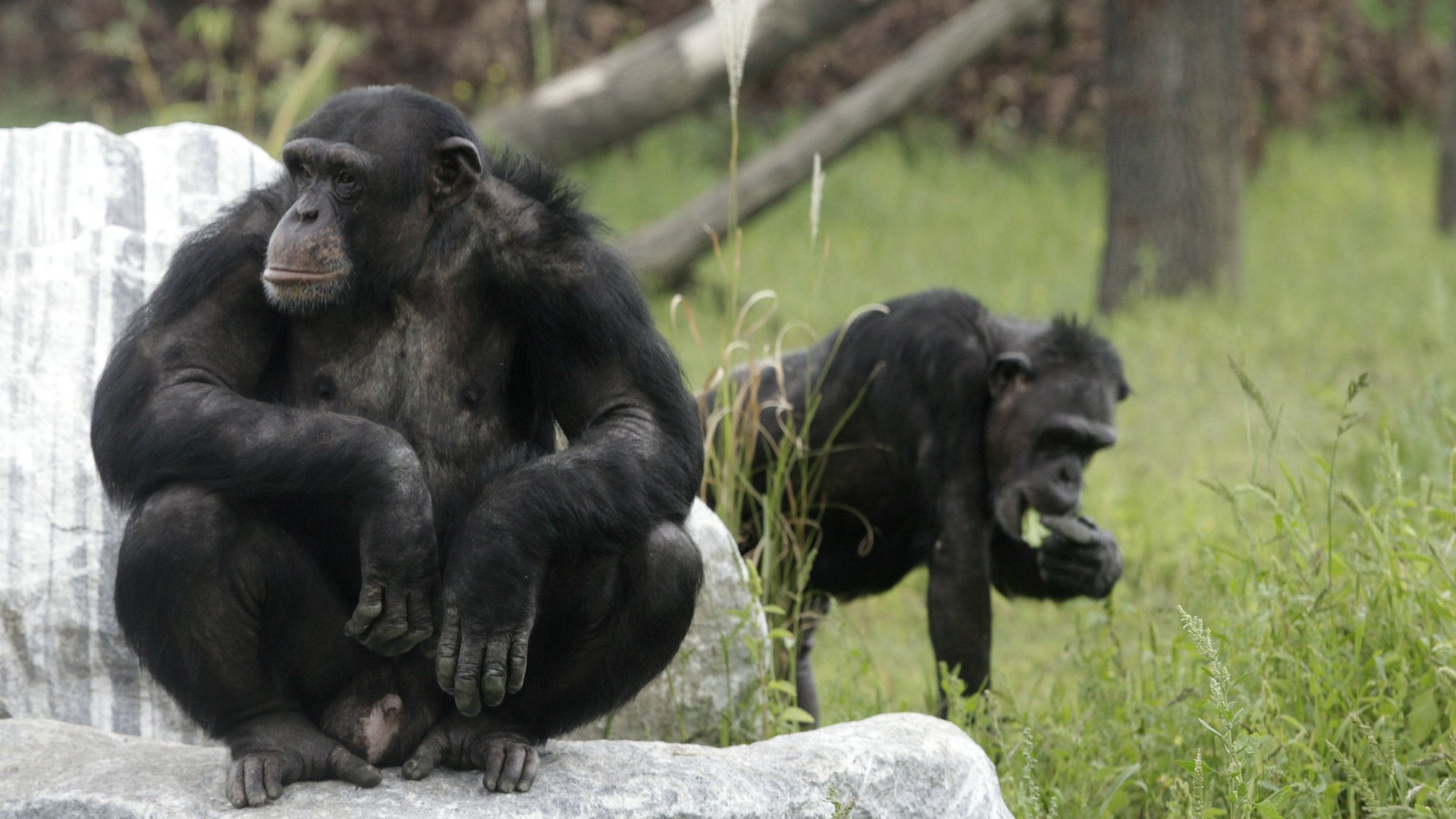Humans aren’t the only species that trusts
Trust is crucial for any strong friendship. But before humans relied on friends to text us back and not let us embarrass ourselves while drunk, we counted on each other for survival in the wild. Many scientists believe that trust has strong evolutionary value—and there’s reason to believe we’re not the only species that trusts.


Trust is crucial for any strong friendship. But before humans relied on friends to text us back and not let us embarrass ourselves while drunk, we counted on each other for survival in the wild. Many scientists believe that trust has strong evolutionary value—and there’s reason to believe we’re not the only species that trusts.
For five months, Jan Maxim Engelmann and Esther Herrmann studied the behavior of 15 chimpanzees at Sweetwaters Chimpanzee Sanctuary in Kenya. In a paper published (pdf) on Thursday (14. January) in Current Biology, the two researchers from Max Planck Institute for Evolutionary Anthropology presented evidence that chimpanzees trust their friends.
Engelmann and Herrmann recorded chimpanzees’ tactile behavior, including grooming, contact, arm’s reach, and co-feeding. They used 352 hours of data to calculate which chimpanzees were most sociable with each other, and so determine which could be considered closest friends.
Chimpanzees were then given a “trust test” to carry out. Individuals were offered a choice between pulling a “no-trust” rope and a “trust” rope. The no-trust rope provided immediate access to a less-preferred food. The trust rope gave access to preferred food—but only to the chimpanzee’s partner, who could share the food. Each chimpanzee carried out 12 trials with their closest friend, and 12 with a non-friend. (One chimpanzee was excluded from the trials because he couldn’t understand the rope-pulling mechanism.)
Eleven chimps were significantly more likely to choose the trust rope when they played with their closest friend. Two chose the trust rope just as often with their friend as with their non-friend. And one odd chimp chose to trust his least-close acquaintance more than his closest friend.
Of course, 15 chimpanzees is not a massive sample size (though, to be fair, it’s difficult to persuade hundreds of wild chimpanzees to perform trust tests.) But Engelmann and Herrmann take the results to suggest that chimpanzees do trust their friends to share food, more than they trust mere acquaintances.
“In line with the economic definition of trust, chimpanzees were significantly more likely to voluntarily place resources at the disposal of a partner, and thus to choose a risky but potentially high-payoff option, when they interacted with a friend as compared to a non-friend,” they write in the paper.
“This finding provides evidence that chimpanzees, like humans, evolved robust forms of trust toward their close social partners, which might allow them to forge cooperative relationships even in contexts where threats of defection by cheaters loom large.”